Related Research Articles

Frédéric François Chopin was a Polish composer and virtuoso pianist of the Romantic period, who wrote primarily for solo piano. He has maintained worldwide renown as a leading musician of his era, one whose "poetic genius was based on a professional technique that was without equal in his generation".
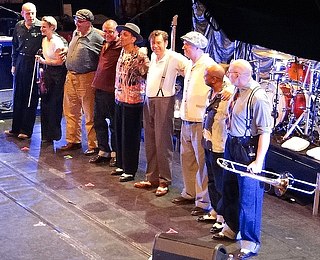
Dexys Midnight Runners are an English pop rock band from Birmingham, with soul influences, who achieved major commercial success in the early to mid-1980s. They are best known in the UK for their songs "Come On Eileen" and "Geno", both of which peaked at No. 1 on the UK Singles Chart, as well as six other top-20 singles. "Come On Eileen" also topped the US Billboard Hot 100, and with extensive airplay on MTV they are associated with the Second British Invasion.
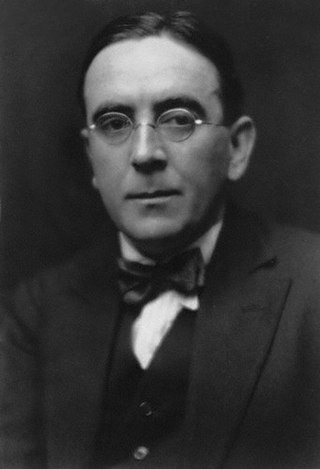
John Nicholson Ireland was an English composer and teacher of music. The majority of his output consists of piano miniatures and of songs with piano. His best-known works include the short instrumental or orchestral work "The Holy Boy", a setting of the poem "Sea-Fever" by John Masefield, a formerly much-played Piano Concerto, the hymn tune Love Unknown and the choral motet "Greater Love Hath No Man".
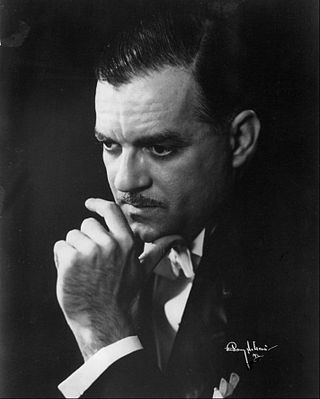
Jorge Bolet was a Cuban-born American virtuoso pianist and teacher. Among his teachers were Leopold Godowsky, and Moriz Rosenthal – the latter an outstanding pupil of Franz Liszt.
Songs of a Wayfarer is a song cycle for baritone and piano composed by John Ireland (1879–1962) between 1903 and c.1911, and published in 1912. It consists of settings of five poems by various poets.
The Ballade No. 1 in G minor, Op. 23 is a ballade for solo piano by Frédéric Chopin. Completed in 1835, it is one of Chopin's most popular works. A typical performance lasts nine to ten minutes.
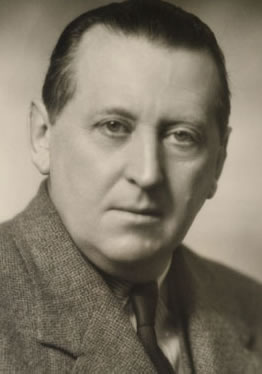
Edwin York Bowen was an English composer and pianist. Bowen's musical career spanned more than fifty years during which time he wrote over 160 works. As well as being a pianist and composer, Bowen was a talented conductor, organist, violist and horn player. Despite achieving considerable success during his lifetime, many of the composer's works remained unpublished and unperformed until after his death in 1961. Bowen's compositional style is widely considered as ‘Romantic’ and his works are often characterized by their rich harmonic language.
A ballade, in classical music since the late 18th century, refers to a setting of a literary ballad, a narrative poem, in the musical tradition of the Lied, or to a one-movement instrumental piece with lyrical and dramatic narrative qualities reminiscent of such a song setting, especially a piano ballade.
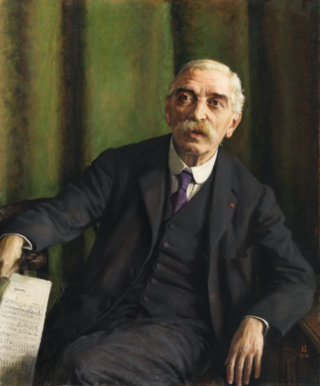
Michele Esposito was an Italian composer, conductor and pianist who spent most of his professional life in Dublin, Ireland.
The Piano Concerto in E-flat was John Ireland’s only concerto. It was composed in 1930 and given its first performance on 2 October of that year by its dedicatee Helen Perkin at a Promenade Concert in the Queen's Hall. The work was an immediate success and was frequently performed by pianists such as Clifford Curzon, Moura Lympany, Eileen Joyce, Gina Bachauer and Arthur Rubinstein. While it is considered one of the best piano concertos ever written by an Englishman, it is not often heard nowadays and is not part of the standard repertoire.
NewMusicSA is a non-profit arts advocacy organisation that promotes the creation, performance, and enjoyment of South African new music. Founded in 1999 and operating formally since 2003, NewMusicSA is the South African section of the International Society for Contemporary Music (ISCM).
The Holy Boy is a short composition by the English composer John Ireland. Alongside his setting of the hymn "My Song Is Love Unknown", it is probably his best-known work. Originally for solo piano, Ireland arranged it for various other forces over nearly 30 years. A performance takes about 3 minutes.
Alan Rowlands was an English pianist who made notable contributions to British musical life both as a teacher and as a performer.
Rhondda Gillespie was an Australian-born classical pianist who resided primarily in the United Kingdom and Barbados. She was a specialist in the music of Franz Liszt and brought to light many of his lesser-known works. She was also renowned for her focus on contemporary music, and she gave many world premieres of British music.
Ballad is a piece for piano solo composed in 1929 by John Ireland.
London Pieces is a set of three pieces for piano solo composed in 1917–20 by John Ireland.
Sonatina is a work for piano solo in three movements composed in 1926–27 by John Ireland (1879–1962). He dedicated it to his friend, the conductor and BBC music producer, Edward Clark.
Mai-Dun is an orchestral work composed in 1921 by John Ireland (1879–1962). He called it a symphonic rhapsody; another description might be tone poem. In 1931, he arranged it for piano four hands.

James Cooksey Culwick was an English musician who is most well known for being organist of the Chapel Royal and founding the Orpheus Choir, both in Dublin, Ireland. The Culwick Choral Society is both named in honour of Culwick and traces its lineage to the Orpheus Choir.
Helen Craddock Perkin was a pianist and composer, best known today for her association with John Ireland during the 1920s and 1930s.
References
- ↑ "List of works – A to B". The John Ireland Trust. Archived from the original on 24 May 2015. Retrieved 2 May 2015.
- 1 2 Richards, Fiona. The Music of John Ireland (2000), Ch. 5
- ↑ 'London Nights', Capriccio c3010 (2021) reviewed at MusicWeb International
- ↑ John Ireland: Ballade of London Nights, for piano at AllMusic . Retrieved 2 May 2015.